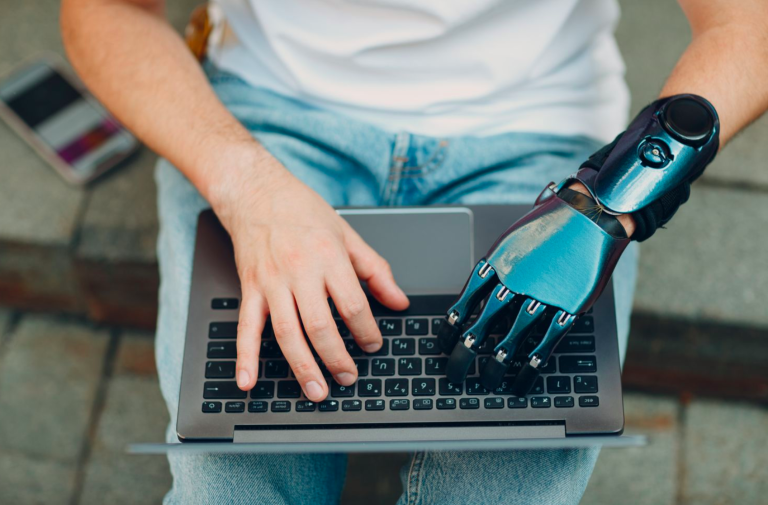AI in Healthcare: Enhancing Health Monitoring Systems
In recent years, Artificial Intelligence (AI) has become more than just a buzzword in the tech industry. It’s making waves in various sectors, and healthcare is no exception. One of the most exciting applications? Enhancing health monitoring systems. From early detection of diseases to personalized health insights, AI is revolutionizing how we approach our well-being. Let’s dive into how AI is transforming health monitoring systems and what this means for you. 🤖❤️
Table of Contents
1. The Role of AI in Health Monitoring
2. Benefits of AI-Powered Health Systems
3. Challenges and Considerations
4. Future of AI in Healthcare
5. FAQs
The Role of AI in Health Monitoring
AI’s role in health monitoring is akin to having a personal assistant who never sleeps. These systems analyze vast amounts of data, providing insights that were previously unimaginable. Whether it’s through wearable devices or advanced software, AI helps in tracking vital signs, predicting health issues, and even recommending lifestyle changes. Imagine your smartwatch alerting you about an irregular heartbeat before you even notice it! That’s AI in action. 📈⌚
Benefits of AI-Powered Health Systems
AI-powered health systems bring a plethora of benefits:
1. Early Detection: AI can identify patterns and anomalies in data, leading to early disease detection. This means conditions like diabetes or heart disease might be caught before they become severe.
2. Personalized Healthcare: AI analyzes individual health data to provide personalized recommendations. It’s like having a nutritionist, personal trainer, and doctor all rolled into one! 🏋️♂️🥗
3. Cost-Effective: By preventing diseases and reducing hospital visits, AI can lower healthcare costs significantly. This makes quality healthcare more accessible to everyone.
Challenges and Considerations
Despite its potential, AI in healthcare isn’t without challenges. Privacy concerns are at the forefront, as these systems handle sensitive data. Ensuring robust data security is crucial. Additionally, there’s the matter of accuracy. AI systems must be trained with diverse datasets to avoid biases and errors. Lastly, healthcare professionals need to adapt to these technologies, which requires training and a shift in traditional practices. 🛡️🔍
Future of AI in Healthcare
The future looks promising, with AI expected to become even more integrated into healthcare systems. Imagine AI-powered robots assisting in surgeries or virtual health assistants providing real-time consultations! As technology advances, collaboration between tech companies and healthcare providers will be critical to harness AI’s full potential and ensure it benefits all. 🌟🏥
FAQs
1. How does AI improve patient care?
AI improves patient care by providing early diagnosis, personalized treatment plans, and reducing the need for invasive procedures, enhancing overall patient outcomes.
2. Are there any risks associated with AI in healthcare?
Yes, there are risks such as data privacy concerns, potential biases in AI algorithms, and the need for constant updates and monitoring to ensure accuracy and relevance.
3. Can AI replace healthcare professionals?
AI is not intended to replace healthcare professionals but to augment their abilities. It provides tools and insights that help doctors make informed decisions, allowing them to focus more on patient care.
4. What are some examples of AI in health monitoring devices?
Examples include wearable fitness trackers, smartwatches with health monitoring capabilities, and AI-driven apps that track and analyze health metrics like sleep patterns, heart rate, and physical activity.
As AI continues to evolve, its role in healthcare promises to be transformative. Embracing these changes means stepping into a future where health monitoring is more efficient, personalized, and accessible to all. Stay informed and stay healthy! 🌿🤖




